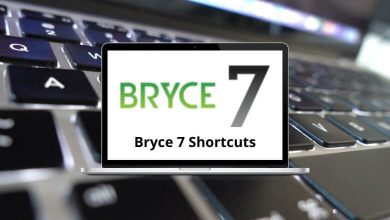The Best 20 Bookmark Managers of 2026
With the increasing amount of online content, bookmark managers have become essential tools for efficiently organizing, accessing, and managing saved web pages. In 2026, a wide variety of bookmark managers cater to different needs, offering features such as cloud synchronization, AI-powered organization, and cross-platform support.
Table of Contents
- 1 Best 20 Bookmark Managers of 2026
- 1.1 1. Raindrop.io
- 1.2 2. Pocket
- 1.3 3. Evernote Web Clipper
- 1.4 4. Wallabag
- 1.5 5. Firefox Sync
- 1.6 6. Hoarder
- 1.7 7. Floccus
- 1.8 8. Diigo
- 1.9 9. Memex
- 1.10 10. ArchiveBox
- 1.11 11. start.me
- 1.12 12. Instapaper
- 1.13 13. Eagle
- 1.14 14. PageKeeper
- 1.15 15. Linkwarden
- 1.16 16. Fabric Internet OS
- 1.17 17. Obsidian Web Clipper
- 1.18 18. TheBrain
- 1.19 19. Otter – Bookmark Manager
- 1.20 20. Linkeeper
- 2 Conclusion
Whether you are a student, professional, researcher, or casual web browser, choosing the right bookmark manager can significantly improve productivity and information management.
Best 20 Bookmark Managers of 2026
This structured breakdown will help you quickly evaluate and choose the best bookmark managers for your needs.
1. Raindrop.io
Raindrop.io is a feature-rich bookmark managers designed for users who want a visually appealing and well-organized collection of bookmarks. It supports tags, collections, and cloud-based synchronization.
Features of Raindrop.io:
- Supports folders, tags, and collections
- Cross-platform support (web, mobile, and desktop apps)
- AI-powered search and smart suggestions
- Team collaboration and sharing features
- Cloud backup and synchronization
Pros of Raindrop.io:
- Intuitive and visually appealing interface
- Strong organization and categorization tools
- Secure cloud-based backup
Cons of Raindrop.io:
- Premium features require a subscription
- Can be overwhelming for beginners
2. Pocket
Pocket is a read-it-later service that doubles as a bookmark manager, allowing users to save articles, videos, and webpages for offline reading.
Features of Pocket:
- Offline reading mode
- Tagging and highlighting tools
- Text-to-speech functionality
- Cross-platform syncing
- Personalized content recommendations
Pros of Pocket:
- Great for saving and reading articles later
- Simple and clutter-free interface
- Strong mobile support
Cons of Pocket:
- Lacks advanced organization features
- Some premium features require a subscription
3. Evernote Web Clipper
Evernote Web Clipper is an extension of the popular Evernote app, allowing users to save web pages, images, and PDFs directly into their Evernote notebooks.
Features of Evernote Web Clipper:
- Save full web pages, simplified articles, or screenshots
- Organize clips into notebooks with tags
- Annotation and highlighting tools
- Syncs across all Evernote-supported devices
- Searchable content with OCR (optical character recognition)
Pros of Evernote Web Clipper:
- Seamless integration with Evernote
- Advanced annotation and note-taking features
- OCR makes clipped content searchable
Cons of Evernote Web Clipper:
- Requires an Evernote account
- Some features locked behind a paid plan
4. Wallabag
Wallabag is an open-source bookmark manager focused on privacy and offline reading. It allows users to save articles in a distraction-free format and access them across multiple devices.
Features of Wallabag:
- Open-source and self-hostable
- Offline reading mode
- Supports tagging and categorization
- Reader-friendly interface with no ads
- Integration with third-party services like RSS and Pocket
Pros of Wallabag:
- Great for privacy-conscious users
- Customizable and self-hostable
- No ads or tracking
Cons of Wallabag:
- Requires technical knowledge for self-hosting
- Lacks a visually rich interface compared to competitors
5. Firefox Sync
Firefox Sync is Mozilla’s built-in bookmark and data synchronization tool, allowing users to sync bookmarks, passwords, and history across Firefox devices.
Features of Firefox Sync:
- Encrypted synchronization for privacy
- Supports bookmarks, history, and open tabs
- Works seamlessly across Firefox desktop and mobile
- No additional software needed
- Secure cloud storage by Mozilla
Pros of Firefox Sync:
- Completely free and integrated into Firefox
- Strong focus on privacy and encryption
- Seamless cross-device synchronization
Cons of Firefox Sync:
- Only works with Firefox
- Lacks advanced organization features
6. Hoarder
Hoarder is a minimalistic bookmark manager designed for users who prefer offline storage and personal data control.
Features of Hoarder:
- Local storage without cloud dependency
- Supports tagging and folder organization
- Import/export capabilities
- Open-source with no tracking
- Lightweight and fast
Pros of Hoarder:
- Excellent for privacy-conscious users
- No cloud dependence or third-party tracking
- Open-source and customizable
Cons of Hoarder:
- No cloud sync may be a drawback for some users
- Lacks advanced search capabilities
7. Floccus
Floccus is an open-source bookmark manager that integrates with Nextcloud, allowing users to sync their bookmarks privately.
Features of Floccus:
- Works with Nextcloud and WebDAV
- No cloud tracking
- Syncs with Firefox, Chrome, and Edge
- Supports hierarchical folder structures
- Open-source and customizable
Pros of Floccus:
- Private and secure with no third-party cloud storage
- Cross-browser compatibility
- Fully open-source and customizable
Cons of Floccus:
- Requires Nextcloud/WebDAV for full functionality
- Initial setup may be complex for non-technical users
8. Diigo
Diigo is a research-oriented bookmark manager offering annotation and collaboration features.
Features of Diigo:
- Bookmarking with annotations and highlights
- Cloud-based storage
- Tag-based organization
- Team collaboration tools
- Text and image capture
Pros of Diigo:
- Great for researchers and students
- Rich annotation and highlighting features
- Collaboration-friendly
Cons of Diigo:
- Some features require a paid plan
- Interface can feel outdated
9. Memex
Memex is a privacy-focused bookmark and web history manager with advanced search and annotation tools.
Features of Memex:
- Full-text search across saved content
- Secure local storage with encryption
- Tagging and note-taking capabilities
- Works offline
- Browser extension support
Pros of Memex:
- Powerful search and filtering tools
- Focuses on privacy with encrypted local storage
- Supports offline access
Cons of Memex:
- Lacks a built-in cloud sync option
- Can be overwhelming for casual users
10. ArchiveBox
ArchiveBox is an open-source tool designed for archiving web pages for long-term access.
Features of ArchiveBox:
- Saves full web pages, PDFs, and media
- Open-source and self-hostable
- Works with multiple formats (HTML, PDF, WARC)
- Command-line and web interface options
- Stores content for offline access
Pros of ArchiveBox:
- Ideal for archiving research materials
- Open-source and privacy-friendly
- Works without internet access
Cons of ArchiveBox:
- Requires technical knowledge for setup
- Lacks advanced UI features
11. start.me
start.me is a bookmark and homepage manager that offers a customizable dashboard with widgets and integrations.
Features of start.me:
- Customizable homepage with widgets
- Supports team collaboration
- Cloud synchronization
- Tag-based bookmark organization
- RSS feed integration
Pros of start.me:
- Highly customizable interface
- Great for managing multiple bookmarks efficiently
- Collaborative features for teams
Cons of start.me:
- Some advanced features require a paid plan
- Can feel cluttered with too many widgets
12. Instapaper
Instapaper is a minimalist read-it-later app with bookmarking and annotation features.
Features of Instapaper:
- Offline reading mode
- Annotation and highlighting tools
- Simple UI with distraction-free reading
- Cross-platform support
- Speed reading mode
Pros of Instapaper:
- Clean and distraction-free design
- Works well for article reading
- Supports offline access
Cons of Instapaper:
- Limited categorization options
- Some premium features require a subscription
13. Eagle
Eagle is a powerful bookmark manager for designers, helping users save and organize visual content.
Features of Eagle:
- Visual bookmarking with image previews
- Folder and tag-based organization
- Screenshot and annotation tools
- Cross-device syncing
- AI-powered image search
Pros of Eagle:
- Perfect for designers and creatives
- Supports a variety of file formats
- Rich organizational features
Cons of Eagle:
- Requires a one-time purchase
- Not ideal for text-heavy bookmarks
14. PageKeeper
PageKeeper is a simple yet effective bookmark manager designed to help users keep track of important web pages effortlessly.
Features of PageKeeper:
- Intuitive user interface
- Cloud-based synchronization
- Supports folder and tag organization
- Quick search and filtering options
- Secure backup system
Pros of PageKeeper:
- Easy to use and navigate
- Reliable cloud storage
- Fast search functionality
Cons of PageKeeper:
- Limited advanced features
- Requires an internet connection for full functionality
15. Linkwarden
Linkwarden is an open-source bookmark manager focusing on privacy and self-hosting capabilities.
Features of Linkwarden:
- Self-hosted for privacy
- Tagging and folder support
- Web archive capabilities
- Advanced search options
- Multi-user collaboration support
Pros of Linkwarden:
- Privacy-focused with self-hosting option
- Strong categorization and search features
- Great for teams and collaborative work
Cons of Linkwarden:
- Requires technical knowledge for setup
- No native mobile apps
16. Fabric Internet OS
Fabric Internet OS is an innovative bookmark managers designed to integrate web browsing with knowledge management.
Features of Fabric Internet OS:
- AI-powered search and organization
- Cross-platform synchronization
- Smart tagging and categorization
- Integrates with note-taking apps
- Secure cloud storage
Pros of Fabric Internet OS:
- AI-driven insights and recommendations
- Works seamlessly with productivity tools
- Intuitive and modern interface
Cons of Fabric Internet OS:
- Some features require a subscription
- Can be overwhelming for new users
17. Obsidian Web Clipper
Obsidian Web Clipper is an extension designed to integrate web content directly into Obsidian for note-taking and organization.
Features of Obsidian Web Clipper:
- Direct integration with Obsidian notes
- Markdown support
- Works offline
- Tagging and organization tools
- Open-source and privacy-friendly
Pros of Obsidian Web Clipper:
- Ideal for researchers and note-takers
- Local-first storage for privacy
- Highly customizable
Cons of Obsidian Web Clipper:
- Requires Obsidian for full functionality
- No built-in cloud sync
18. TheBrain
TheBrain is a visual bookmark and knowledge management tool designed for organizing complex information.
Features of TheBrain:
- Mind-map style visualization
- Cross-platform support
- Cloud synchronization
- Tagging and relational linking
- AI-powered organization
Pros of TheBrain:
- Excellent for visual thinkers
- Helps organize complex information effectively
- Powerful AI-driven organization tools
Cons of TheBrain:
- Learning curve for new users
- Some features require a premium subscription
19. Otter – Bookmark Manager
Otter is a lightweight and fast bookmark managers built for ease of use and quick access.
Features of Otter:
- Minimalist and user-friendly interface
- Supports tags and folders
- Fast search and retrieval
- Cloud synchronization
- Dark mode support
Pros of Otter:
- Simple and effective design
- Fast and responsive
- No unnecessary bloat
Cons of Otter:
- Lacks advanced customization features
- No offline mode
20. Linkeeper
Linkeeper is a versatile bookmark managers that offers cross-device accessibility and a clean interface.
Features of Linkeeper:
- Secure cloud-based storage
- Easy-to-use interface
- Organize bookmarks with tags and folders
- Import/export functionality
- Collaboration tools for sharing bookmarks
Pros of Linkeeper:
- Clean and modern UI
- Secure and reliable cloud sync
- Supports team collaboration
Cons of Linkeeper:
- Free plan has limited storage
- No browser extension support yet
Conclusion
Choosing the right bookmark managers in 2026 depends on your specific needs, whether it’s privacy, collaboration, AI-powered organization, or offline access. There are options for every type of user, from visually rich tools like Raindrop.io to privacy-focused open-source solutions like Wallabag and Floccus. Those who prefer a read-it-later experience may find Instapaper or Pocket more useful, while researchers and professionals might benefit from Diigo, Memex, or TheBrain. For those who require a more technical, self-hosted solution, Linkwarden and ArchiveBox stand out.
While most bookmark managers offer cloud synchronization, AI search, and cross-platform access, they come with trade-offs, such as subscription fees or a learning curve. Open-source and privacy-centric options often require manual setup but provide long-term control over data.
Ultimately, the best bookmark managers is one that aligns with your workflow and organizational habits. Whether you prioritize ease of use, advanced features, or complete control over your data, this list provides a comprehensive guide to help you make an informed decision.
READ NEXT:





